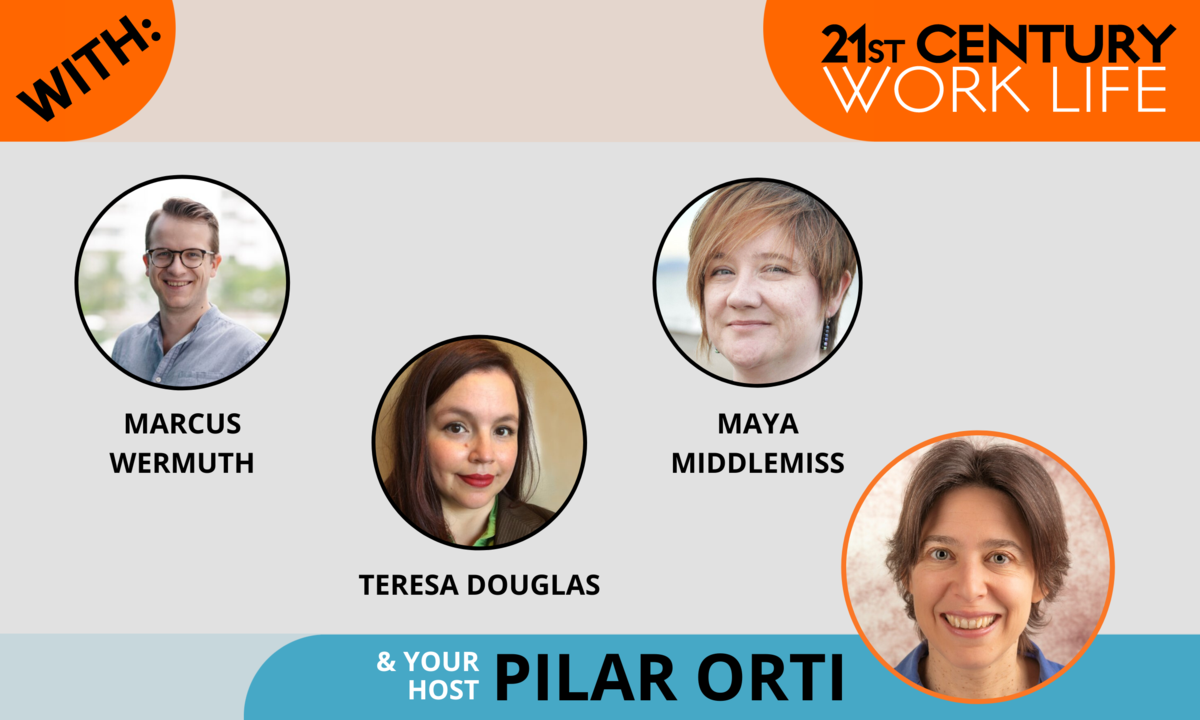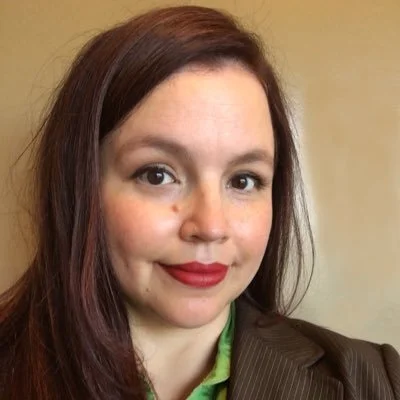WLP229 Not Business as Usual in the (Already) Remote World
To counterpoint the wave of content to support people new to working from home we wanted to take time to reflect on the current state of knowledge work in the age of corona and the way things have changed already, and might continue to change in the future.
(If you are new to this and looking for support in suddenly working from home, then we’d advise you to check out this short bonus episode in the first instance, as well as episode 60 of My Pocket Psych podcast. And contact us if we can help with anything specific to keep you going).
While we’ll always advocate for working from home as an option in the mix, the world is short on options right now. Even for Pilar, doing voiceover work in studios is presently on complete hiatus, and work is changing at Virtual Not Distant with a surge in requests from work with Spanish companies - not traditionally keen to embrace ‘teletrabajo’ (see episode 214 for more on this) who are now looking towards long-term shifts in how they collaborate for the future.)
And today we talk in depth to 3 experts in remote work and long-term home-based working, all of whom will be familiar voices to regular listeners, and can help us think about the trends and shifts we’re identifying in the way we work together - wherever we are.
12.35 Marcus Wermuth
Marcus Wermuth
Marcus is an engineer manager at all-remote company Buffer, and veteran of many of our episodes, including the recent special ‘Connection and Disconnection’ series.
Working in a globally distributed team, he reflects that it’s rare for any phenomenon to impact on the whole company in the way of the current crisis. But it’s affecting people unevenly - like the engineer suddenly homeschooling 3 kids unexpectedly, for example. And productivity is obviously reduced, both across the board and for particular individuals.
New products and releases are continuing at Buffer, but expectations are dialled down, and managers are supporting people to work whenever and however they can. They’re checking in with each other, making sure people put family and community first - work for just one hour a day if that’s all they can manage. And they’re doing their best also to lighten the mood, encouraging the sharing of memes and humour, as well as latest news.
It’s a tricky line for managers to tread, there has to be a strong message of empathy embedded in every conversation, above and beyond any ‘business as usual’ communication. We’re all humans, going through this on our individual path, and impacted in different ways - and different countries are experiencing things on their own time frame.
Marcus reflects that we need to look at long-term solutions and ways of doing things, and also to look toward future uncertainties. More video calls are happening, including informal gatherings - if the work works asynchronously that’s great (and Buffer are exemplary here), but they’re finding value in increased connection in real time just for human interaction. Everyone is using this technology outside the workplace too nowadays, and perhaps we won’t have to convince people any more that work can be done from anywhere in future, that it’s even possible… Because that concept is now proven.
Marcus is spending plenty of time on inner work and reflection, meditating regularly, as well as actively communicating and connecting with others. And he’s thinking about long-term resilience and change, for organisations and individuals in the future - while reminding us all to be kind to ourselves and each other, right now.
Connect on Twitter and via his website.
32.05 Teresa Douglas
Another familiar voice rejoins us today, Teresa is the co-author of “Working Remotely: Secrets to success for employees in distributed teams”, and has often shared her wisdom with us before. She is still working full time, from home in Vancouver - but now with her children and husband at home too.
Teresa Douglas
Her team is fully remote, and helping other divisions in their company make the transition in a hurry. She’s glad to be able to support colleagues, but finding the challenges of parenting in this era means being a lot more flexible about schedule and practicalities. She is being as relaxed as possible about expectations of her kids, relieved that they’re old enough to be fairly self-sufficient while she works. It’s harder to disconnect, but she can still enjoy her knitting, if not her regular running, and escaping into fiction or a dance party with her kids when the moment is right.
In her work with colleagues, she’s finding it very important that people know it’s ok not to be ok. And that it’s fine to relax and be social, to let your family life bleed into work time and space, and to make allowances for each other., They had good conversations ahead of the office restrictions, and agreed about time off and covering for each other, to protect against stress and let people meet family commitments.
Socially, Teresa’s enjoying being the host of Zoom parties and being the introvert at the heart of the interactions. She recognises that it’s a privilege to still have work and a pay cheque, but that she’s missing out on all the leisure and content people who cannot work are enjoying right now. As always it’s about finding the right balance, even when that balance has completely shifted for the time being, and she recommends this great article from Harvard Business Review which helps identify and accept the stresses we are all under in different ways:
“There are a lot of people that may rely on us because we have that expertise and in some ways you have to think of yourself as a first responder, and make sure that you have your own needs taken care of as well, don't forget that in the middle of this crisis”.
Keep up with Teresa on Twitter and also her website.
43.24 Maya Middlemiss
Virtual Not Distant associate Maya needs no introduction here, but when she’s not working on our content and events in-house, she’s also a freelance writer and journalist, specialising in emergent tech and all the other ‘future-of’ social impact stuff in addition to the future of work. She’s worked from home for 20 years now, but has never known a year quite like 2020.
Spain has been under strict lockdown for a couple of weeks at the time of recording, and Maya is grateful to have work to do, a large enough home - chosen to enable both her and her husband to work from home - and a good reliable internet connection. Their daughters are older too, and already very good at staring at screens for hours on end.
In addition to high demand for content around collaboration tech, Maya is glad to be able to support friends and family in being the go-to person in her circle for getting up and running fast with working from home. She wouldn’t have chosen for them to experience it under these circumstances, but is happy to have some way to help, not being a nurse or a delivery worker or any of the other really vital roles which we are all so reliant on.
Maya Middlemiss
And she’s enjoyed also helping repurpose these tools to support social initiatives, from neighbourhood virtual coffees to a Zumba classes to a Mother’s Day family Zoom call. She has set up her 14-year-old to offer ‘virtual babysitting’, helping younger kids with their homework and enabling their parents to get some work done.
For her own collaborations, which involve interviewing sources for articles frequently, Maya has found each call taking a little longer and connecting more deeply - checking in with how things are in their part of the world, often meeting their children and pets along the way (and even daring to dream that she will never have to apologise for the presence of her own again). Perhaps, Maya reflects, we can all talk more openly about stress at work, about blending rather than separating work from the rest of life, and bring greater acknowledgement of context to our creativity and productivity in the future. At the very least, it’s clear that things are never going to go back to exactly the way they were, and it’d be good to reflect and make some conscious choices about what ‘business as usual’ might look like in the future.
Follow Maya on Twitter and LinkedIn, to keep up with all the things she writes about outside Virtual Not Distant.
And do keep your feedback coming, we really enjoy it - please contact us, or you can tweet Virtual Not Distant, or Pilar and Maya directly, with any of your thoughts and ideas. What do you think of our new podcast artwork for a start, we’d love to hear your thoughts!
If you like the podcast, you'll love our monthly round-up of inspirational content and ideas:




